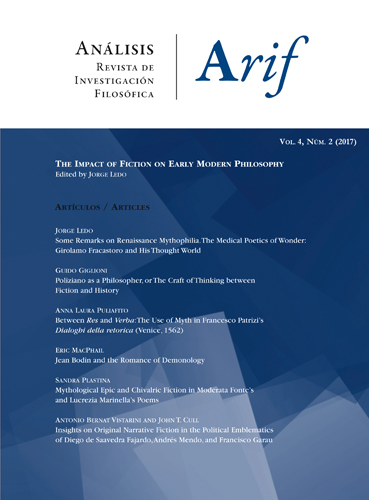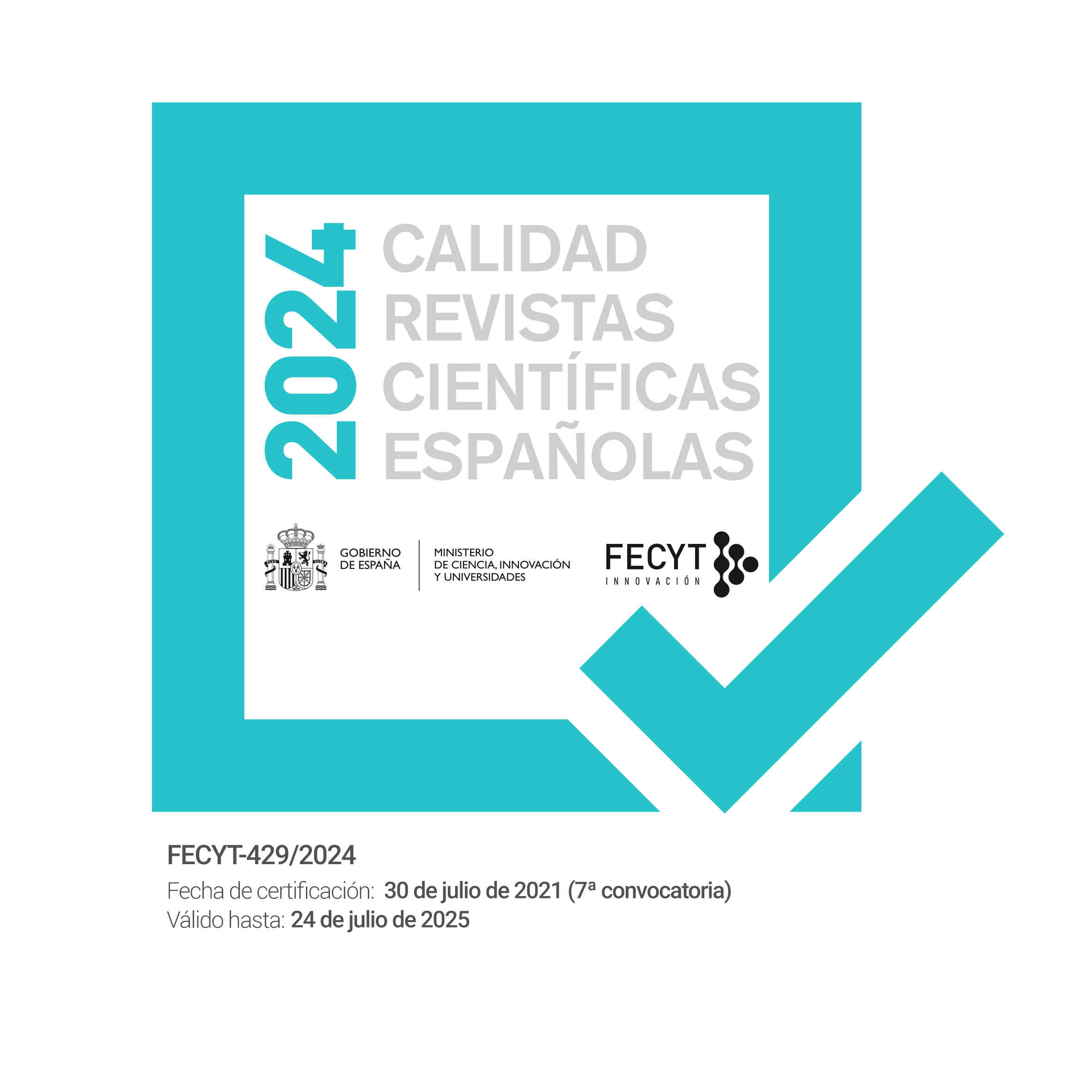Some Remarks on Renaissance Mythophilia. The Medical Poetics of Wonder: Girolamo Fracastoro and His Thought World (Appendix Galeotto Marzio, De doctrina promiscua [ante 1490, princeps 1548])
DOI:
https://doi.org/10.26754/ojs_arif/a.rif.201722472Abstract
The following pages make a case for the important role played by Aristotle’s Metaphysics α 2 982b11–21 in Renaissance poetics and especially in that of Girolamo Fracastoro. As this passage, and Aristotle’s Metaphysics in general, have traditionally been denied a major role in the poetics of the Renaissance, I have been obliged to develop my argument in three sections. [1.] The first focuses on Thomas Aquinas’s roundbreaking reading of the quotation in psychological and epistemological terms, and on how he and his contemporaries were able to harmonize it both with the corpus Aristotelicum and with the development of a place for poetry in the system of the arts. [2.] The second section illustrates how the first humanists used Aristotle’s authority to invert the meaning of the passage, transforming it into an argument in defense of the primacy of poetry over the rest of the arts. This appropriation had two undesiderable effects: either depriving the passage of its theoretical implications or, worse, assimilating Aristotle’s words into a Platonizing vision of poetry. Only with the recovery of the Greek text of Aristotle’s Poetics in the late fifteenth century did the passage escape its new status as a commonplace in humanist defense of poetry, and was briefly again considered as a point of departure for the analysis of concepts such as fabula (fiction) and admiratio (wonder), based on philosophical, poetic, and medical premises. [3] The last section introduces Galeotto Marzio’s and Giovanni Pontano’s pioneering works on these two concepts—fabula and admiratio—, as an introduction to the subsequent synthesis done by Girolamo Fracastoro, who, from the positions held by Marzio and Pontano as well as Aquinas’s original intuition, was able to harmonize natural philosophy and poetry by means of their psychological implications. This is what I have called here the ‘medical poetics of wonder’ or, more simply, mythotherapy.
Downloads
Downloads
Published
How to Cite
Issue
Section
License
Los autores que publican en esta revista están de acuerdo con los siguientes términos: los autores conservan los derechos de autor y garantizan a la revista el derecho de ser la primera publicación del trabajo al igual que licenciado bajo una Creative Commons Reconocimiento-No Comercial-Sin Obra Derivada 4.0 (CC BY-NC-ND) que permite a otros compartir el trabajo con un reconocimiento de la autoría del trabajo y la publicación inicial en esta revista. Los autores pueden establecer por separado acuerdos adicionales para la distribución no exclusiva de la versión de la obra publicada en la revista (por ejemplo, situarlo en un repositorio institucional o publicarlo en un libro), con un reconocimiento de su publicación inicial en esta revista.






